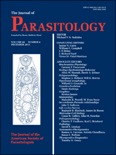
JOURNAL OF PARASITOLOGY
Scope & Guideline
Illuminating the Complex World of Parasites
Introduction
Aims and Scopes
- Host-Parasite Interactions:
Research on the dynamics of interactions between parasites and their hosts, including behavioral, physiological, and immunological responses. - Molecular and Genomic Studies:
Studies utilizing molecular techniques to understand the genetic basis of parasite biology, host specificity, and drug resistance mechanisms. - Ecological and Epidemiological Research:
Investigations into the ecological aspects of parasites, including their distribution, prevalence, and the impact of environmental factors on parasitic infections. - Innovative Diagnostic Techniques:
Development and validation of new diagnostic methods for detecting parasitic infections in various hosts, enhancing both clinical and veterinary applications. - Therapeutic Approaches and Control Strategies:
Research focused on the development of new treatments, vaccines, and control strategies to manage parasitic infections in humans and animals. - Evolutionary and Phylogenetic Studies:
Exploration of the evolutionary relationships among parasites and their hosts, including studies on phylogenetic patterns and speciation.
Trending and Emerging
- CRISPR and Genetic Engineering Applications:
The use of CRISPR technology in parasitology is gaining momentum, with studies focusing on genetic modifications to understand parasite biology and develop new control strategies. - Ecological Parasitology:
An increasing emphasis on ecological factors influencing parasite dynamics, including habitat changes, climate impacts, and host community structures, is emerging as a key area of research. - Microbiome Interactions:
Research exploring the interactions between parasites and host-associated microbiomes is on the rise, shedding light on how these relationships influence health and disease. - Advanced Diagnostic Techniques:
There is a growing trend towards developing rapid and efficient diagnostic methods, including molecular and immunological assays, for early detection of parasitic infections. - One Health Approach:
The integration of human, animal, and environmental health perspectives is becoming increasingly important, highlighting the interconnectedness of parasitic diseases across different domains. - Host Immunology and Resistance Mechanisms:
Research focusing on the immune responses of hosts to parasitic infections and the mechanisms of resistance is gaining traction as a vital area for developing effective treatments.
Declining or Waning
- Traditional Taxonomy:
There is a noticeable decrease in studies primarily focused on traditional taxonomic classifications, as molecular and genomic approaches gain prominence in understanding parasite diversity. - Historical Perspectives:
While historical analyses of parasitology have been valuable, recent publications indicate a waning interest in retrospective studies that do not offer immediate application to current challenges. - Generalized Epidemiological Models:
Research using simplified epidemiological models that do not account for the complexities of host-parasite interactions appears to be declining, in favor of more integrated and nuanced approaches. - Basic Laboratory Studies:
Research that focuses solely on basic laboratory experiments without direct applications to field conditions or clinical implications is becoming less frequent. - Invasive Species Studies:
While still relevant, studies on invasive parasites and their impacts have seen reduced emphasis as attention shifts towards understanding native parasite dynamics and conservation.
Similar Journals

Parasites Hosts and Diseases
Advancing Knowledge on Parasitic RelationshipsParasites Hosts and Diseases is an emerging academic journal focusing on the intricate relationships between parasites, their hosts, and associated diseases. Published by the Korean Society of Parasitology in collaboration with Seoul National University College of Medicine, this journal is a significant contribution to the fields of Infectious Diseases and Parasitology, and it has secured a place in the Q3 category for both disciplines as of 2023. With an ISSN of 2982-5164 and an E-ISSN of 2982-6799, this open-access publication aims to foster scholarly communication and provide a platform for researchers to disseminate their findings on critical issues related to parasitic infections and the pathogenesis thereof. Although it is still in the early stages of its history, the journal has already positioned itself as a useful resource within its field, with Scopus rankings showing it as 48th of 79 in Parasitology and 210th of 344 in Infectious Diseases, indicating its growing influence and the potential for impactful research. Situated in South Korea, and via its open-access model, Parasites Hosts and Diseases is committed to reaching a global audience of scientists, healthcare professionals, and students, all dedicated to understanding and combating the challenges posed by parasitic diseases.
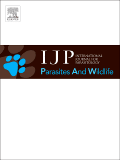
International Journal for Parasitology-Parasites and Wildlife
Fostering Insights into Ecological Impacts of ParasitesThe International Journal for Parasitology-Parasites and Wildlife, published by ELSEVIER, is a premier open-access journal dedicated to advancing the field of parasitology and wildlife research. Established in 2012, this influential journal has garnered a reputation for excellence, as evidenced by its impressive rankings, including Q1 in Animal Science and Zoology and Q2 in both Infectious Diseases and Parasitology as of 2023. With an ISSN of 2213-2244, this journal serves as a critical platform for researchers, professionals, and students, fostering a deeper understanding of parasite-host interactions and their ecological impacts. The journal encourages innovative studies that contribute to the mitigation of infectious diseases and enhance wildlife conservation efforts. With a commitment to open access, the International Journal for Parasitology-Parasites and Wildlife ensures that cutting-edge research is easily accessible to the global scientific community, helping to bridge gaps in knowledge and stimulate further inquiry.
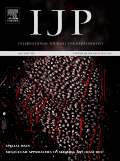
INTERNATIONAL JOURNAL FOR PARASITOLOGY
Connecting Researchers to the Heart of ParasitologyInternational Journal for Parasitology, published by Elsevier Sci Ltd, stands as a premier platform for disseminating groundbreaking research in the fields of parasitology and infectious diseases. With an impressive impact factor represented by its Q1 quartile rankings in both Infectious Diseases and Parasitology for 2023, this journal commands significant attention within the scientific community. Operating since 1971, it has profoundly contributed to the understanding of parasitic infections and their implications for human health, occupying a distinguished position ranked #7 out of 79 in Parasitology and #64 out of 344 in Infectious Diseases according to Scopus metrics. Although the journal currently does not offer open access options, it ensures rigorous peer review and unparalleled academic integrity, providing researchers, professionals, and students with critical insights necessary for advancing knowledge and fostering innovations in parasitology. Together with its rich historical foundation and commitment to excellence, the journal is indispensable for anyone delving into the complexities of parasites and their impact on both host and ecosystem.
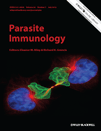
PARASITE IMMUNOLOGY
Advancing the Frontiers of Host-Parasite Research.PARASITE IMMUNOLOGY, published by Wiley, is a leading journal in the field of immunology and parasitology, with an ISSN of 0141-9838 and E-ISSN of 1365-3024. Since its inception in 1979, it has played a pivotal role in advancing our understanding of host-parasite interactions, immunological responses to parasitic infections, and the mechanisms of immunological resistance. The journal is adeptly positioned within the academic community, currently holding a prestigious Q2 ranking in Parasitology and a Q3 ranking in Immunology for 2023, indicating its significant influence and relevance. Its comprehensive scope attracts a diverse readership, contributing to the discourse surrounding novel therapeutic approaches and emerging challenges in parasitic diseases. With a consistent convergence of research until 2024, PARASITE IMMUNOLOGY is an essential resource for researchers, professionals, and students seeking to deepen their knowledge and foster collaboration in these dynamic fields. Although it is not an open-access journal, the insights shared within its pages are invaluable for shaping future research trajectories.

REVISTA BRASILEIRA DE PARASITOLOGIA VETERINARIA
Bridging Local Insights with Global Parasitology TrendsThe REVISTA BRASILEIRA DE PARASITOLOGIA VETERINARIA, published by the BRAZILIAN COLLEGE OF VETERINARY PARASITOLOGY, serves as a premier platform for disseminating groundbreaking research and advancements in the field of veterinary parasitology. Since its transition to Open Access in 2007, the journal has significantly contributed to fostering global collaboration and knowledge sharing among researchers and practitioners. Situated in Brazil, this esteemed journal features a diverse range of studies focused on the latest developments and challenges in veterinary and parasitological sciences. With a commendable Q3 ranking in Parasitology and Q2 ranking in Veterinary (miscellaneous) for 2023, it is recognized for its growing impact in the academic community, particularly holding positions in the 60th percentile for General Veterinary and 37th percentile in Parasitology. Researchers, professionals, and students interested in enriching their understanding of veterinary parasitology will find this journal a vital resource, as it bridges regional expertise with global research trends, thus embracing a holistic approach to veterinary health.

FOLIA PARASITOLOGICA
Exploring the Intricacies of Host-Parasite Dynamics.FOLIA PARASITOLOGICA is a distinguished scholarly journal published in the Czech Republic, focusing on the field of parasitology. With a commitment to advancing knowledge in parasitology, the journal covers a wide array of topics including the biology and control of parasites, host-parasite interactions, and epidemiology. Having been in circulation since 1971 and currently converging its years of research until 2024, FOLIA PARASITOLOGICA has established itself as a vital resource for researchers, professionals, and students in immunology and microbiology, currently ranked in the Q3 category for Parasitology. Although it does not operate under an open-access model, the journal's relevance is underscored by its Scopus ranking, where it is positioned 47th out of 79 in the field, reflecting the high standards of research it publishes. By hosting a range of studies and reviews, FOLIA PARASITOLOGICA continues to contribute significantly to the scientific community, fostering advancements that enhance our understanding and management of parasitic diseases.
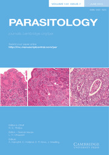
PARASITOLOGY
Navigating the intricate world of parasites and hosts.PARASITOLOGY, published by Cambridge University Press, is a prestigious journal that has been at the forefront of research in the field of parasitology since its inception in 1908. This esteemed publication carries the ISSN 0031-1820 and E-ISSN 1469-8161, and its rigorous peer-reviewed articles provide insights into both fundamental and applied aspects of parasitic biology, infectious diseases, and host-parasite interactions. With a commendable impact factor, PARASITOLOGY ranks in the top quartile (Q1) for Animal Science and Zoology and holds Q2 rankings in both Infectious Diseases and Parasitology categories, indicating its significant influence and contribution to these disciplines. The journal's diverse scope allows for a broad range of research articles, reviews, and case studies, making it an essential resource for researchers, professionals, and students seeking to stay updated on the latest developments in the field. Based in the United Kingdom, PARASITOLOGY offers valuable access to critical research in an era where understanding parasitic diseases is more vital than ever, and continues to shape the future of this important scientific field.

JOURNAL OF HELMINTHOLOGY
Connecting researchers to combat helminth challenges.JOURNAL OF HELMINTHOLOGY, published by Cambridge University Press, has been a pioneering platform for the dissemination of research in the field of helminthology since its inception in 1923. With a notable focus on animal science and parasitology, this journal holds a distinguished position in the academic landscape, attaining Q2 status in Animal Science and Zoology and Q3 in both Medicine (miscellaneous) and Parasitology as of 2023. The journal aims to advance the understanding of helminth parasites, their epidemiology, and the myriad implications for human and animal health. Access to this esteemed journal is currently non-open, enabling a curated and high-quality review process that enhances the academic rigor seen in its publications. Residing in the United Kingdom, the JOURNAL OF HELMINTHOLOGY serves as a vital resource for researchers, professionals, and students alike, fostering a community dedicated to combating the challenges posed by helminth infections globally. With its rich history and commitment to excellence, the journal continues to contribute significantly to the fields of parasitology and beyond.
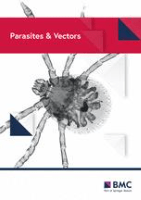
Parasites & Vectors
Innovating research to combat vector-borne pathogens.Parasites & Vectors is a leading open access journal dedicated to the dissemination of high-quality research on the vectors of infectious diseases and their parasitic agents. Published by BMC in the United Kingdom, this journal has been at the forefront of its field since its establishment in 2008, contributing to our understanding of vector-borne pathogens through its rigorous peer-reviewed articles. With a notable impact factor and categorized in the top quartile (Q1) in both Infectious Diseases and Parasitology, it is an essential resource for researchers, professionals, and students worldwide. The journal ranks impressively within various categories, holding a position of 7th out of 194 in Veterinary General Veterinary and 12th out of 79 in Immunology and Microbiology Parasitology, indicating its significant contribution to the sciences. Accessible to all, Parasites & Vectors supports the global pursuit of knowledge in epidemiology and disease control, making it an indispensable platform for sharing innovative findings and fostering collaboration within the scientific community.
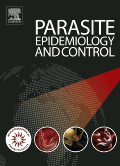
Parasite Epidemiology and Control
Leading the charge in the fight against parasitic diseases.Parasite Epidemiology and Control is a premier open-access journal published by Elsevier, dedicated to advancing the understanding of parasites and their impact on public health. Since its inception in 2016, the journal has established itself as a prominent publication in the fields of epidemiology, infectious diseases, and parasitology, achieving a commendable classification of Q2 in these categories as per 2023 metrics. With its ISSN 2405-6731, the journal serves as a vital resource for researchers, practitioners, and students, offering rigorous, peer-reviewed articles that illuminate parasite-related epidemiological trends and control strategies. Based in the United Kingdom, Parasite Epidemiology and Control actively promotes open access, ensuring that crucial research findings are readily accessible to a global audience, thus enhancing collaborative efforts in tackling parasitic diseases. The journal's impact is reflected in its Scopus rankings—ranking 17th in Parasitology among 79 journals, 47th in Epidemiology among 148, and 121st in Infectious Diseases among 344—underlining its significance in the scientific community. Join us in exploring this critical field and contributing to the fight against parasitic diseases through innovative research and shared knowledge.